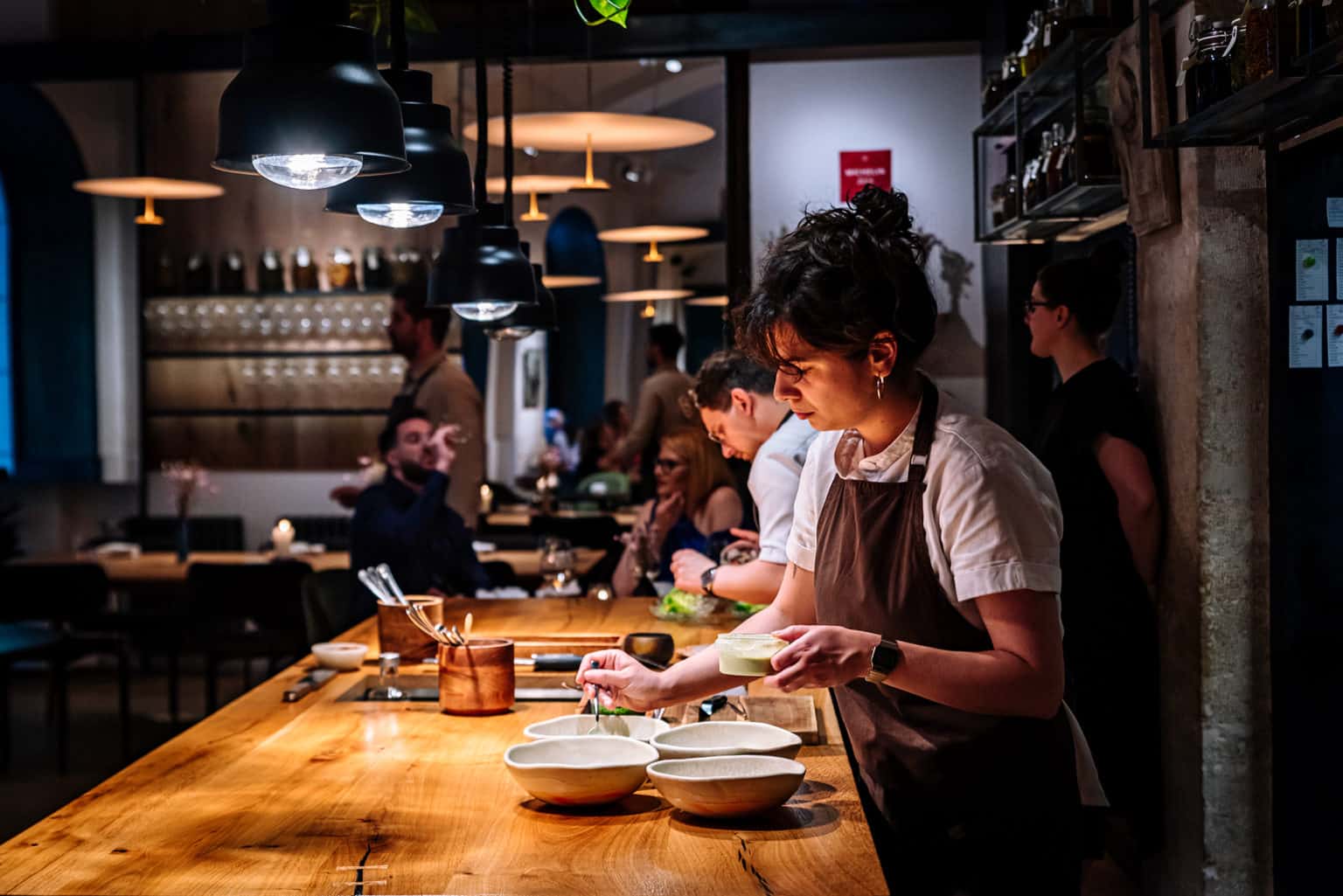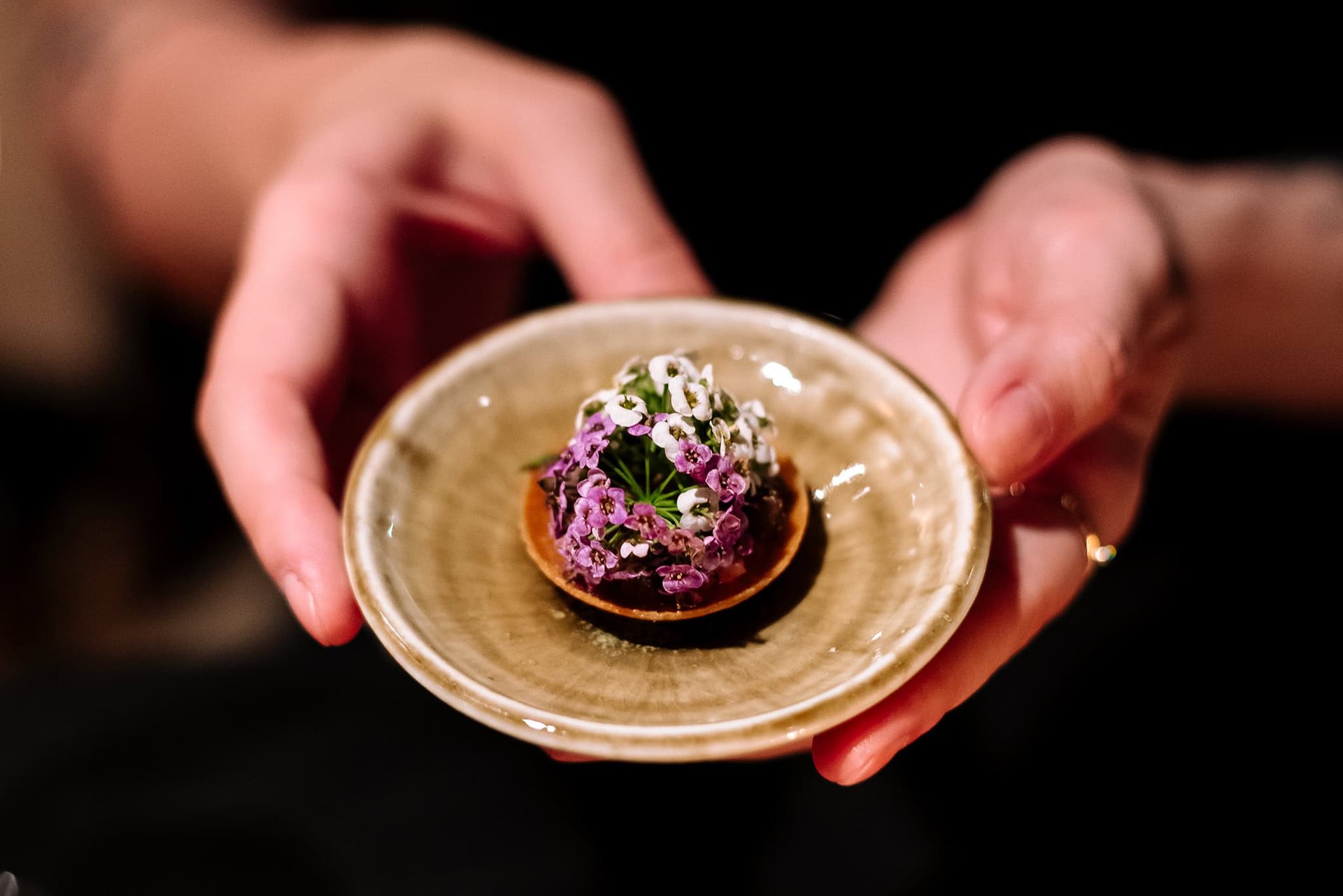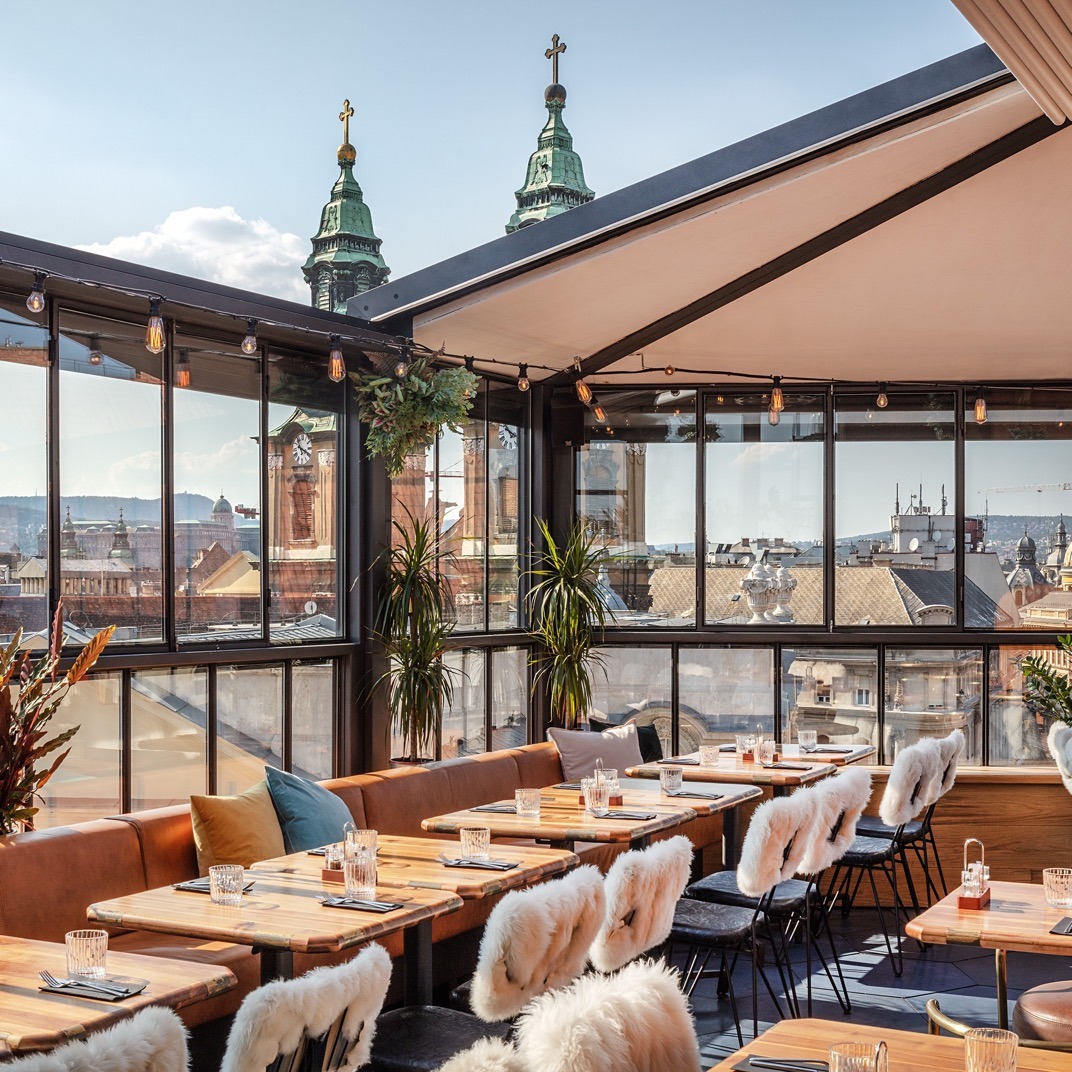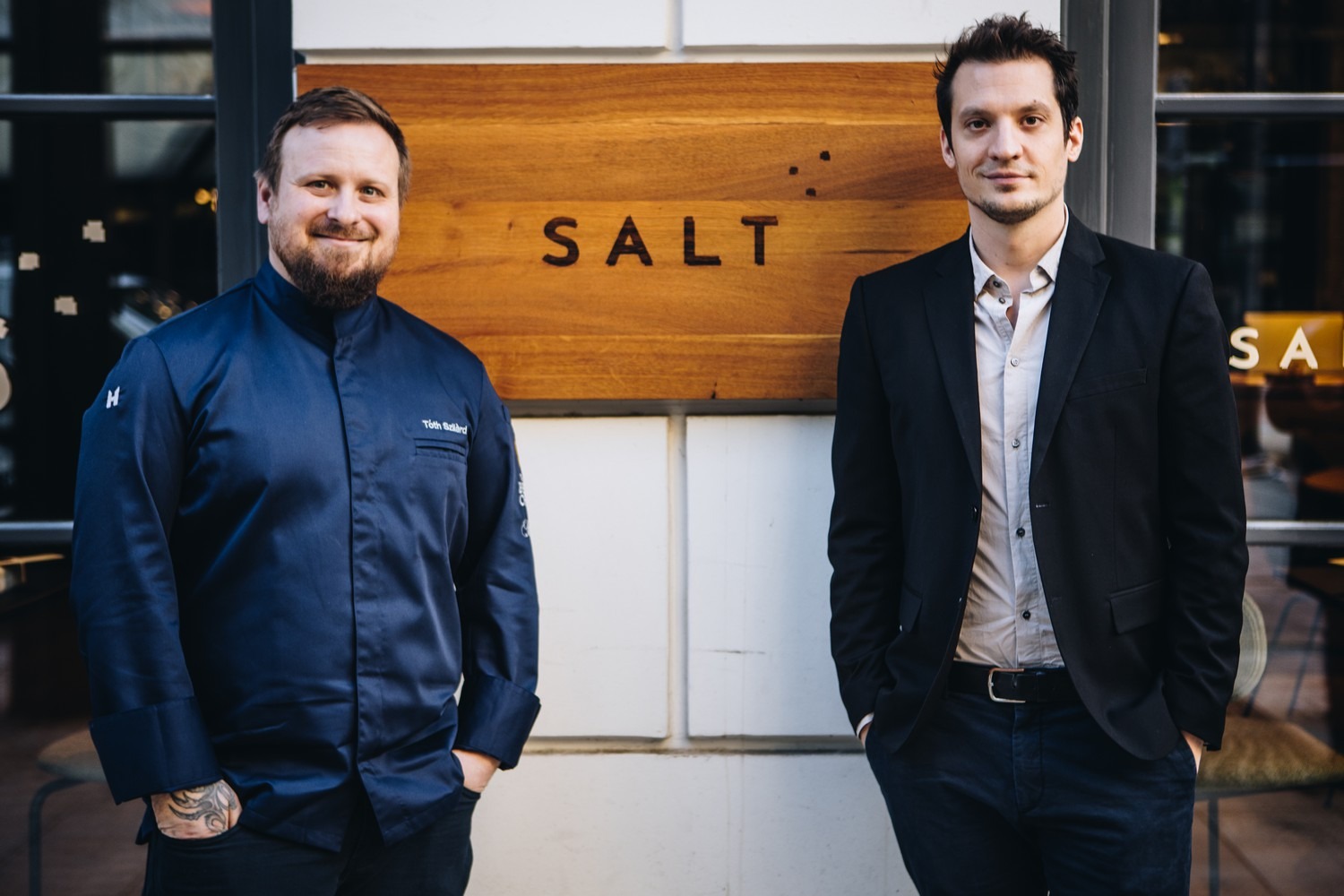Salt Restaurant - Budapest
Seasonality and wild traditions distilled into contemporary Hungarian art on a plate


Philosophy Rooted in Nature and Identity
Salt Budapest is not just a restaurant—it is an immersive philosophy built on seasonality, sustainability, and a passionate reverence for Hungarian culinary tradition. Conceived and led by chef-owner Szilárd Tóth, Salt was founded in 2019 with the goal of redefining what modern Hungarian cuisine could be: wild, personal, restrained yet deeply emotional. Alongside sommelier and co-owner Máté Boldizsár, Tóth envisioned a restaurant where every dish would speak not only of flavor, but of place. Many of the ingredients are foraged by Tóth himself, plucked from forests and meadows outside Budapest, carefully preserved using traditional techniques like pickling, curing, and fermenting, and then reimagined with contemporary flair. The team works with a short supply chain that includes a family farm in Szatmár, sourcing heritage breeds, wild herbs, seasonal vegetables, and homemade vinegars and reductions. Nothing is outsourced unnecessarily. The restaurant breathes the land it’s rooted in, embodying a form of Hungarian terroir dining that is at once intimate, transparent, and meticulous. In many ways, Salt is as much a return to ancestral intuition as it is a refined culinary laboratory—a duality that gives every dish its tension and strength.
A Space That Mirrors Its Essence
Tucked into the ground floor of the boutique Hotel Rum in central Pest, Salt’s interior offers an experience that is calm, focused, and almost monastic in its elegance. The dining room is compact and serene, anchored by an open kitchen framed in black steel and wood, allowing diners to watch the chefs as they craft each course. There are no theatrical distractions or decor flourishes vying for attention. Instead, Salt draws focus to its essential elements: the plates, the sounds of the kitchen, the gentle rhythm of pacing, and the interaction between chef and guest. Each table feels deliberately placed for intimacy, while the high arched windows and soft lighting offer a sense of quiet introspection. The ambiance is restrained, yet undeniably stylish. It is both contemporary and rooted, designed for guests who seek a deeper, more reflective culinary experience. Servers move gracefully, chefs occasionally present plates in person, and there is an almost meditative silence that pervades the room—not cold or aloof, but focused, as if every guest is part of a shared ritual.
Awards and Recognition
Salt’s impact has been rapid and significant. In September 2021, it received its first Michelin star, a validation of its craftsmanship and vision. In 2022, it earned the Michelin Green Star, a distinction awarded to restaurants that embody excellence in environmental responsibility. These accolades confirmed what local diners and food critics had already sensed: Salt was not just another fine dining venue chasing trends, but a rare example of authentic culinary authorship. It belongs to a small but growing category of Central European restaurants where personal history, ecological mindfulness, and artistic intent converge. Critics often compare Salt to Nordic pioneers like Noma or Fäviken, but Szilárd Tóth has emphasized that his reference point is Hungary itself—its forest mushrooms, its village food traditions, its long winters and blazing summers. The restaurant has also been featured in regional "best of" lists and frequently mentioned among the most interesting gastronomic destinations in Europe, but it remains unpretentious and sincere, never striving for spectacle at the expense of soul.
The Heartbeat of Hospitality
Salt’s dining experience is highly structured, but never rigid. From the moment guests arrive, there is a sense of being enveloped in something quiet and meaningful. The front-of-house team is informed and present, but never overbearing. They understand the pace of attention, the ebb and flow of curiosity, the importance of silence between explanations. The courses arrive in cadence, with time to digest each one, both literally and figuratively. Chefs often deliver the plates themselves, adding insights or gestures that ground the experience. Though the restaurant seats only a few dozen guests at a time, each visit feels like a private conversation with the kitchen. For those accustomed to the extravagant theatrics of other Michelin venues, Salt offers something more introspective—an invitation to taste, listen, and remember. Even the bread course, often featuring homemade sourdough with whipped fermented butter and salt-cured lard, feels like a ceremony of trust.
What the Guests Say
Online forums and guest reviews reveal a nuanced picture of how Salt resonates with its visitors. Some are completely enchanted, describing the food as emotionally moving, with specific praise for the wild mushroom dishes, fermented vegetable broths, and elegant offal preparations. Many first-time fine dining guests find Salt to be remarkably approachable, both in tone and flavor. Others note that the experience is not for everyone. A few courses, such as the cabbage pasta or pickled vegetable petit fours, can be polarizing—either praised as genius or critiqued for being conceptually distant. Some guests also remark that the service, while exacting, may lack a certain emotional warmth, especially if you’re expecting constant engagement. But for diners who come with curiosity and openness, Salt delivers a memorable and thought-provoking evening that lingers in the memory.
Practical Information for Visitors
Salt is located at Királyi Pál utca 4, 1053 Budapest, nestled within the Hotel Rum in the city center. The restaurant operates Wednesday through Saturday, offering dinner service only, with seatings beginning from 18:00 until around 23:00. There is no lunch service. Reservations are required, made exclusively online via the official website, and a credit card guarantee is necessary to hold the booking. Guests are encouraged to reserve well in advance, especially for weekend slots. The tasting menu is priced at 69,500 HUF per person, with optional drink pairings ranging from 24,000 HUF to 85,000 HUF, depending on the wine tier. Non-alcoholic pairings are available and must be requested in advance. A 15 percent service charge is added automatically. Salt is not suitable for children under ten, and pets are not permitted. While there is no strict dress code, most guests opt for smart casual attire in keeping with the quiet elegance of the setting. Dietary restrictions, including vegetarian and vegan preferences, must be communicated in advance and are accommodated wherever possible.
Salt is located within walking distance of the Danube, the Central Market Hall, and the vibrant café culture of central Pest. While there is no private parking, nearby garages and street parking options are available. The restaurant’s location makes it an excellent choice for visitors looking to pair a cultural city walk with a dining experience that feels grounded, thoughtful, and distinctly Hungarian.
Official Links
For reservations, menus, and more, visit the official website:
https://saltbudapest.com/
Follow their updates and behind-the-scenes on social media:
Instagram: @salt_budapest
Facebook: Salt Budapest


The Culinary Logic Behind the Menu
Salt’s tasting menu is not a list of greatest hits or signature showstoppers—it is a living document, evolving constantly according to the seasons, the weather, the harvest, and the creative instincts of the kitchen. It typically features around 14 courses, each one designed to build upon the last with deliberate pacing and thematic continuity. The opening dish, often a bouquet of foraged herbs with a dip of yeast cream or fermented garlic, immediately sets the tone: you are entering into a dialogue with nature. From there, the journey continues with surprising and soulful combinations: koji-fermented barley crepes filled with goat tartare, smoked duck hearts paired with blackcurrant glaze, crispy trout skin resting atop cultured cream and pickled fennel. While some ingredients may sound rustic, the execution is always precise, elegant, and minimalist. The kitchen is particularly skilled at drawing out depth from unexpected sources. Miso made from corn enhances wild mushrooms; fermented cabbage broth adds acidity and body to delicate game meats; dried tomato powders or caramelized whey offer grounding notes that echo through the menu. The fermentation program at Salt is among the most sophisticated in Hungary, but never showy. These processes are utilitarian rather than decorative, allowing the chefs to cook through the winter with ingredients preserved in the flush of summer and fall. There is a humble confidence in this approach that sets Salt apart from other Michelin-starred establishments.
The Dance of Wine and Food
In the same spirit of regional loyalty and innovation, the wine program at Salt is carefully designed to harmonize with the food’s earthy, living rhythms. Sommelier Máté Boldizsár has curated a selection of Hungarian organic and biodynamic wines, many of which are unknown outside the country’s borders. Instead of relying on international prestige labels, the wine pairings showcase producers from Tokaj, Etyek, Somló, and Villány, offering expressions of volcanic soil, native grape varietals, and spontaneous fermentation that mirror the kitchen’s ethos. Three different pairing journeys are available: the "local" Hungarian selection, a broader European collection, and a "prestige classic" flight featuring old-world icons. But just as remarkable is the non-alcoholic pairing, composed of in-house fermented juices, infusions, and broths that echo the plate’s ingredients with uncanny sensitivity. Elderflower tea with grilled leeks, blackcurrant vinegar tonic with duck, or celery cordial with fish skin—these drinks are not afterthoughts, but carefully considered elements of the tasting arc. The interplay between food and drink is measured, not overwhelming, with each pour arriving at just the right moment to underscore or contrast the flavors on the plate. Like the food, the drinks tell a story of Hungary’s forgotten techniques and botanical riches, all rendered new again.




Awarded with the Grand Distinction
Salt was honored with the Grand Distinction for masterfully realizing a vision that blends Hungarian food identity, environmental responsibility, technical sophistication, and seasonal narrative into one unforgettable tasting journey. It is worth the visit not only for its Michelin-starred execution, but for its honest, evocative cuisine that celebrates the land and culture of Hungary in the most refined and deeply felt way.







